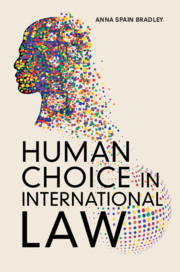Book contents
4 - Human Choice at the International Court of Justice
from Part II
Published online by Cambridge University Press: 06 August 2021
Summary
The International Court of Justice (ICJ), established in 1945, is one of the most powerful institutions in the world. As the judicial arm of the United Nations, it interprets and shapes international law by adjudicating disputes between nations and providing advisory opinions. Over the years, the court has settled numerous disputes over territory, boundaries, and treaty obligations and has provided advisory rulings on the biggest questions in international law. In every case, the court’s judgment is the result of choices made by the fifteen women and men serving on the court at that time. They hold the highest legal credentials and are carefully vetted and elected by both the UN General Assembly and the UN Security Council. Collectively, these judges have the power to make decisions that bind nations. Their rulings may be enforced by the UN Security Council. In the international legal profession, there is no higher office.
- Type
- Chapter
- Information
- Human Choice in International Law , pp. 37 - 52Publisher: Cambridge University PressPrint publication year: 2021

